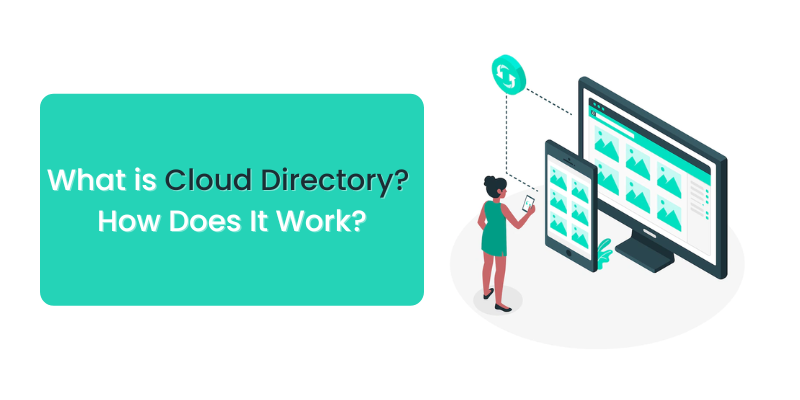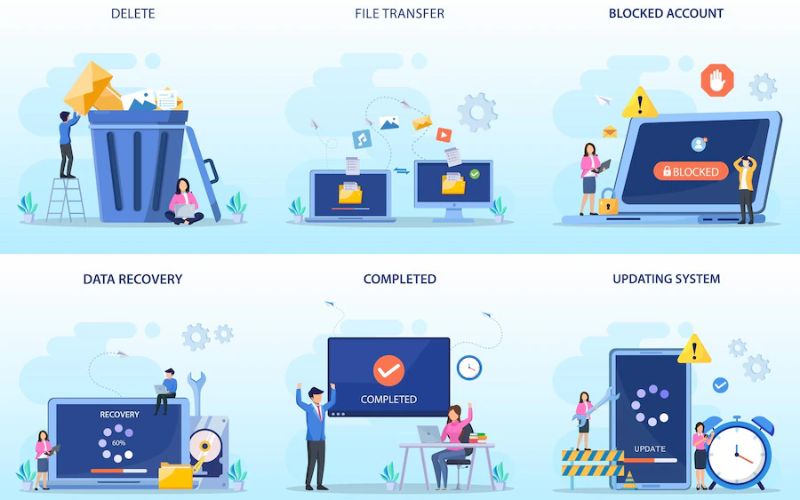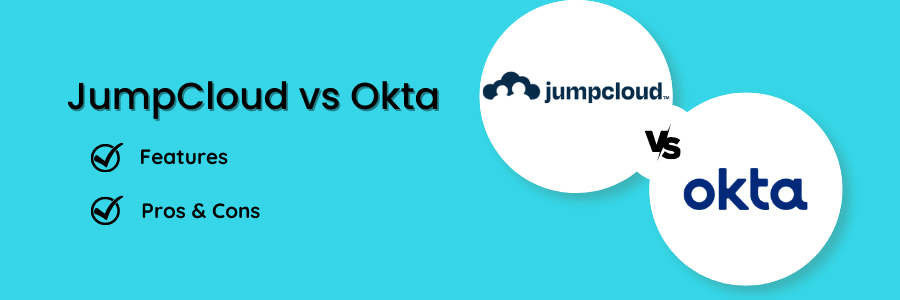What is Cloud Directory? How Does It Work?

The majority of firms were previously unaware of the cloud directory. The idea was a bit underrated. Cloud computing, on the other hand, is not a novel concept today.
Despite this, several companies are still unaware of the implications and advantages of cloud computing.
The cloud is becoming an integral component of modern business, including identity management, thanks to advances in technology and digital transformation.
As a result, grasping this new technology is the first step toward increasing a company’s efficiency. The next step is implementation once the firm has grasped the benefits.
What is Cloud Directory?
A cloud directory is a cloud-based identity management system for storing and managing user IDs. Users can be authenticated across a range of devices and applications using this unified platform.
Furthermore, cloud directories can be used to enable single sign-on (SSO) capabilities, allowing users to log in to numerous operating systems and applications using a single set of credentials.
Cloud directories can be used to automatically issue and de-provision user accounts because they are centrally managed. As a result, cloud directories can assist enterprises in enhancing security and lowering identity management costs.
How Cloud Directory Works?
The information received over the internet must be synchronised with the data accessible. Big business has figured out what’s required to build this relationship.
Many users are unaware that the amount of data being processed is enormous. In a single day, one data centre consumes more energy than an entire town consumes over the course of a year.
Businesses may process information anywhere, at any time, thanks to the combination of cloud computing and an online connection.
Know about the Pros and Cons of Cloud Computing
The latest generation of identity access management (AIM) software is supported by a cloud directory. As objects are required for applications, the directory scales hundreds of millions of things automatically.
Device registries and organisational charts are just two examples of what directories can be used for.
The Advantages of Using a Cloud-Based Directory System
The majority of firms require a cloud-based directory service for a variety of reasons. There are numerous advantages to using a cloud directory.
- All user data is authenticated and maintained in the cloud.
- IT resources are securely maintained, allowing users to connect to almost any IT resource. The IT platform, protocol, provider, and location are all part of this.
- You can build and deploy security features like two-factor authentication and single sign-on with a cloud directory.
- Users can access a Cloud-Based Directory System from anywhere, at any time, making it more handy.
- A Cloud-Based Directory System can simply be connected to other cloud-based applications like Google Workspace.
How to Start Using a Cloud Directory
If you want to create a Cloud-Based Directory for your company, there are a few things you’ll need to do first:
- Choose a reputable cloud directory service. Microsoft Azure Active Directory, Google Cloud Directory, and AWS Directory Service are just a few of the cloud based directory services accessible.
- After you’ve decided on a cloud directory service, you’ll need to set it up, which entails registering a new account and specifying your preferences.
- You’ll need to create users to manage your cloud based directory now that it’s ready. This can be done manually or by synchronising with an existing directory like Active Directory.
- Enable two-factor authentication on all of your platforms, from Windows computers to web apps, to configure security settings for your cloud based directory.
- You’re ready to use your Cloud-Based Directory System now that everything is set up! Users will be able to log in to Windows, Linux, and Mac computers, as well as access web apps and other resources, and you will be able to safeguard your IT environment.
What to Keep in Mind When Using a Cloud Directory System?
The following are the most important aspects:
Is it safe and protected?
For a variety of reasons, the system is safe. In the cloud-hosted directory, all passwords are hashed and one-way salted. Mutual TLS is used for all communication within the platform.
Certification is required for both parties on both sides of the connection. This boosts the level of safety. The hardened infrastructure manages the various ports as well as the levels of access required for communication.
It is necessary to test the infrastructure on a regular basis. Penetration and vulnerability testing are frequently included in this. A cloud-based directory service employs a novel technique.
The Pricing
Both software and hardware are included in the original pricing. The biggest cost is the ongoing management of the directory services, which includes both employee attention and time.
The total cost is determined by the company’s size and number of employees. Despite the numerous benefits, the cost of deploying directory services is high.
What if the cloud-based directory system goes down?
The cloud directory’s design allows it to withstand outages. This means that even if the cloud directory is unavailable, the servers will continue to function globally.
This is what it means to be able to survive. An outage will not have a direct impact on the business.
A cloud directory, without a doubt, has become indispensable for the smooth operation of modern businesses. F60 Host may be just what you need if your firm wants to take advantage of cloud directories and cloud computing.
In an intuitive and secure web interface, F60 Host cloud directory allows you to manage users, groups, authentication methods, and permission levels. It also enhances the onboarding process by serving as a deterrent to fraudulent users.
Check out this video about the cloud directory if you learn better by videos.




